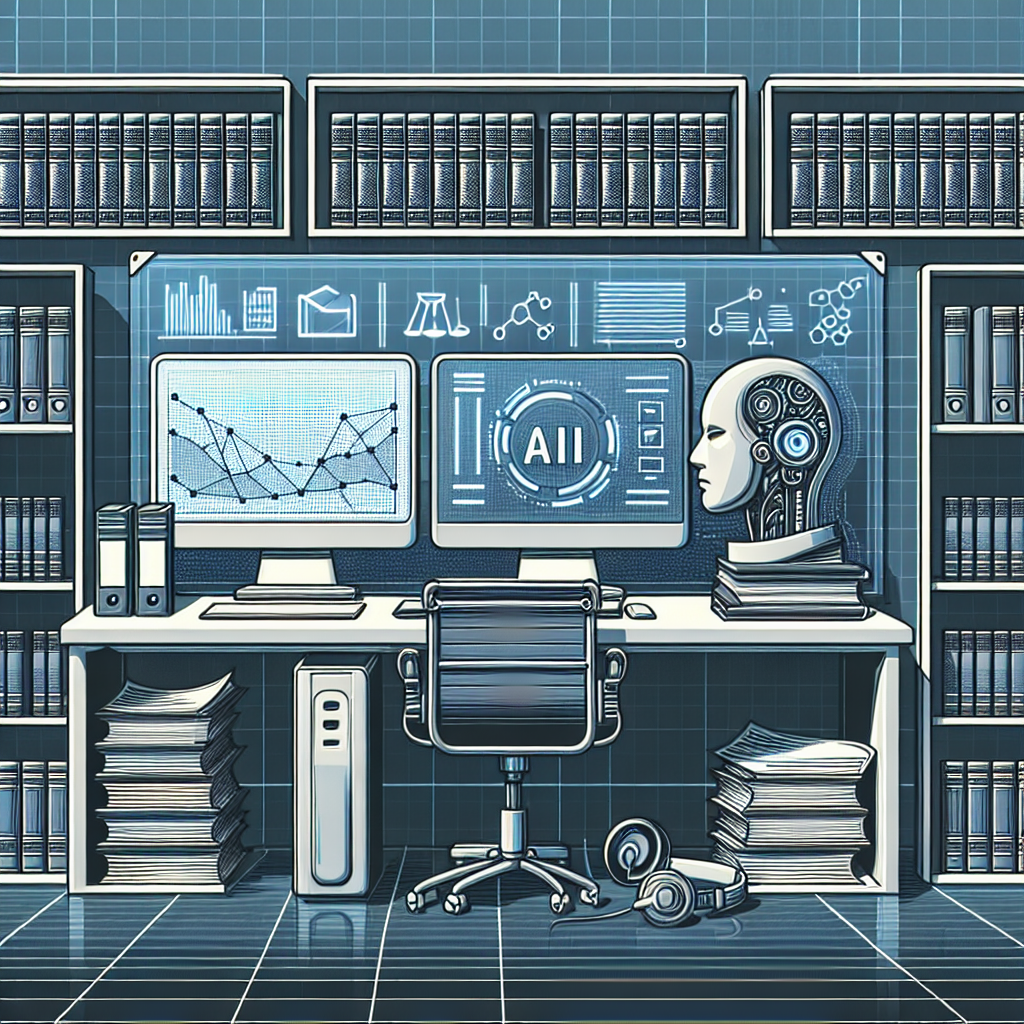The Role of AI in Legal Transcription and Document Analysis
Artificial intelligence (AI) has revolutionized many industries, and the legal field is no exception. AI technology has transformed the way legal transcription and document analysis are conducted, making the process faster, more accurate, and more efficient. In this article, we will explore the role of AI in legal transcription and document analysis, and how it is changing the way legal professionals work.
Legal Transcription
Legal transcription is the process of transcribing audio recordings of legal proceedings, such as court hearings, depositions, and client meetings, into written text. This written text is then used by legal professionals for various purposes, such as preparing legal documents, conducting research, and presenting evidence in court.
Traditionally, legal transcription was a time-consuming and labor-intensive process, as transcriptionists had to listen to audio recordings and manually transcribe them into written text. This process was prone to errors, as transcriptionists could miss important details or misunderstand the content of the recordings.
AI technology has revolutionized legal transcription by automating the process and making it more accurate and efficient. AI-powered transcription software can transcribe audio recordings in real-time, with high levels of accuracy. This not only saves time and reduces costs for legal professionals, but also ensures that the transcribed text is error-free and easy to search and analyze.
AI transcription software uses advanced speech recognition technology to convert spoken words into written text. The software is trained on a vast amount of data, including legal terminology and language patterns, to improve its accuracy and performance. This allows the software to transcribe legal proceedings with high levels of accuracy, even in complex and specialized legal contexts.
In addition to transcribing audio recordings, AI transcription software can also analyze and summarize the transcribed text, making it easier for legal professionals to review and extract key information. This can be particularly useful in cases where large volumes of audio recordings need to be transcribed and analyzed quickly.
Document Analysis
Document analysis is another crucial task in the legal field, as legal professionals often need to review and analyze large volumes of legal documents, such as contracts, court filings, and legal briefs. This process can be time-consuming and labor-intensive, as it requires reading and understanding complex legal language, identifying key information, and extracting relevant insights.
AI technology has transformed document analysis by automating and streamlining the process, making it faster, more accurate, and more efficient. AI-powered document analysis software can scan and analyze large volumes of legal documents in a fraction of the time it would take a human, while also ensuring a high level of accuracy and consistency.
AI document analysis software uses natural language processing (NLP) technology to analyze the content of legal documents, identify key information, and extract relevant insights. The software is trained on a vast amount of legal documents and data, allowing it to understand and interpret complex legal language and terminology.
AI document analysis software can perform a wide range of tasks, such as summarizing legal documents, extracting key information, identifying relevant passages, and flagging potential issues or discrepancies. This can save legal professionals a significant amount of time and effort, allowing them to focus on higher-level tasks and strategic decision-making.
FAQs
Q: How accurate is AI transcription software in transcribing legal proceedings?
A: AI transcription software is highly accurate in transcribing legal proceedings, with accuracy rates of over 90%. The software is trained on a vast amount of data, including legal terminology and language patterns, to improve its accuracy and performance.
Q: Can AI document analysis software replace human analysts in the legal field?
A: While AI document analysis software can automate and streamline the document analysis process, it is not meant to replace human analysts in the legal field. Human analysts bring valuable expertise, judgment, and critical thinking skills to the table, which AI technology cannot replicate.
Q: Is AI technology secure and compliant with legal regulations?
A: AI technology used in legal transcription and document analysis is designed to be secure and compliant with legal regulations, such as data privacy and confidentiality laws. Most AI software providers have robust security measures in place to protect sensitive data and ensure compliance with legal requirements.
Q: How can legal professionals benefit from using AI technology in transcription and document analysis?
A: Legal professionals can benefit from using AI technology in transcription and document analysis in several ways, including saving time and reducing costs, improving accuracy and efficiency, and gaining valuable insights and information from large volumes of legal documents.
In conclusion, AI technology is transforming the way legal transcription and document analysis are conducted, making the process faster, more accurate, and more efficient. Legal professionals can leverage AI-powered transcription and document analysis software to streamline their workflow, save time and costs, and extract valuable insights from large volumes of legal documents. As AI technology continues to evolve and improve, its role in the legal field is only expected to grow, revolutionizing the way legal professionals work and deliver value to their clients.

